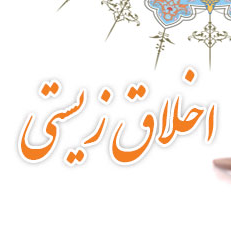بررسی رابطه توسعه رفتار اخلاقی توسط مدیران با سلامت سازمان
مجله اخلاق زیستی- علمی پژوهشی,
دوره 6 شماره 20 (1395),
22 September 2016
,
صفحه 47-66
https://doi.org/10.22037/bioeth.v6i20.13943
چکیده
زمینه و هدف: هدف تحقیق حاضر بررسی رابطه بین توسعه رفتار اخلاقی توسط مدیران با سلامت سازمان بوده است.
روش: روش تحقیق توصیفی از نوع همبستگی با جامعه آماری کارکنان واحدهای دانشگاه آزاد و دولتی استان مازندران به تعداد 5083 نفر و حجم نمونه بر مبنای جدول کرجسی و مورگان به تعداد 346 نفر که به شیوه تصادفی ساده انتخاب شدند. ابزار اندازهگیری پرسشنامه استاندارد سلامت سازمانی با 21 سؤال و پرسشنامه محقق ساخته توسعه رفتار اخلاقی با 35 سؤال بوده است که پایایی آن روی نمونهای 30 نفری با استفاده از روش آلفای کرونباخ برای پرسشنامه سلامت سازمانی 0/92 و برای پرسشنامه توسعه اخلاقی 0/94 محاسبه شده است، برای تجزیه و تحلیل دادهها از نرمافزار SPSS استفاده شده است. دادهها در دو سطح توصیفی و استنباطی با استفاده ازضریب همبستگی پیرسون، آماره فیشر و رگرسیون مورد تجزیه و تحلیل واقع شده است.
یافتهها: نتایج نشان داد که بین آموزش اصول اخلاقی، انتخاب کارکنان با ظرفیت بالقوه اخلاقی، اشاعه قوانین و کدهای اخلاقی، میزان پایبندی مدیران به موازین اخلاقی و در نهایت توسعه رفتار اخلاقی در محیط کار با سلامت سازمان رابطه خطی معنیداری وجود دارد.
بحث و نتیجهگیری: با توجه به یافتههای تحقیق مشخص شد که بین توسعه رفتار اخلاقی در محیط کار و سلامت سازمان رابطه وجود دارد. بنابراین جهت حفظ سلامت سازمان پیشنهاد میگردد افرادی که دارای سوابق خوب و متصف به اخلاق شایسته هستند در پست مدیریت جایگزین گردند و منشوری اخلاقی مبتنی بر قوانین و کدهای اخلاقی که بیانگر بایدها و نبایدهای موجود در سازمان هستند، تدوین گردد و به اطلاع همه کارکنان برسد و بازبینی کدها و خط مشیهای اخلاقی مبتنی بر آن با مشارکت خود کارکنان صورت پذیرد.
- رفتار اخلاقی؛ اصول اخلاقی؛ کدهای اخلاقی؛ سلامت سازمانی؛ مدیران
ارجاع به مقاله
مراجع
Ansari ME. A survey of the relationship between organizational health and positive work attitude of tax administration staff in Isfahan province. Tax quarterly. New series; 2009. p.6.
Tavallaei R. Factors influencing ethical behavior of the staff in an organization. The Scientific and Promotional Bimonthly of Police Human Development 2011; 6(4):22-27.
Jonz D. Noble thinking: Eradication of waste and creation of value in organizations. Translated by Radjad A. Tehran: Amoozeh; 2008.
Khosravi Z. A survey of the relationship between work ethic and organization health, and job satisfaction of teachers in Arsanjan. Journal of Psychology and Educational Sciences 2009; 29(88): 51-76.
Dessler G. Fundamentals of human resources management: Translated by Parsaeian A & Aarabi SM. Tehran: Cultural researches office; 1999.
Daft R. Organization theory and designing structure. Translated by Parsaeian A & Aarabi SM. Tehran: Commerce studies and researches press; 1995.
Saatchi M. Work psychology (application of psychology in work, organization, and management). Tehran: Virayesh Press; 2010.
Ghaninejad M. About Hike. Tehran: NegaheMoaser Press; 2002.
Farastkhah M. Scientific ethic the key to the promotion of higher education. The Monthly of Ethic in Science and Technology 2006; 1(1): 13-27.
Gholipour A. Sociology of organizations. Sociological approach to organization and management. Tehran: Samt; 2001.
Kazemi A. Fundamentals of Islamic management and its patterns. Tehran: Nil Aab; 2000.
Lawson A. Ethical management in government services. Translated by Rabiei Mandjin MR & Keivarian H. Tehran: Yekan Press; 2002.
Maksol J. Professional ethic in management. Translated by Yavari SHA. Tehran: Farda Press; 2007.
Mojtabavi DAM. A survey of organizational ethic of the staff in Mellat Bank branches. Electronically Available at: www.hrdconf.ir/Portals/0/linkimg/31.pdf; 2008.
Mazloomi P. The relationship between transformational leadership style of managers and organizational health in elementary schools for girls in Isfahan. The Journal of Knowledge and Research in Educational Sciences (Islamic Azad University Khorasgan Campus) 2010; 25: 53-68.
Moeidfar S. A survey of work ethic and individual, and social factors influencing it in a manufacturing and industrial unit in Tehran. The Scientific and Research Quarterly of Social Welfare 2007; 6(23): 327-330.
Chih Liao W. The Relationship between Ethics Training and Employee Satisfaction. The Journal of Human Resource and Adult Learning 2010; 6(1): 16.
Donaldson T, Davis K. Business ethics. Management Decision 1990; 28(6): 23.
Gregory P. Perceived Work Ethics of Supervisors and Workers. Journal of Industrial Teacher Education 2005; 42(2): 11.
Kalavani A. The Relationship between Organizational Ethics and Job Satisfaction, Multimedia University. Retrieved from: http://dspace.fsktm.um.edu; 2009.
Kaptein M. The Ethics of Organizations: A Longitudinal Study of the U.S. Working Population Department of Business-Society Management Rotterdam School of Management. Erasmus University Retrieved from: www.papers.ssrn.com; 2009.
Lau HC, Idris MA. Soft foundations of the critical success factors on tqm implementation in Malaysia.TQM Magazine 2005; 13(4): 533.
Rokhman W. The Effect of Islamic Work Ethics on Work Outcomes. EJBO Electronic Journal of Business Ethics and Organization Studies 2010; 15(1): 25.
Sabanci A. The effect of primary school teachers’ burnout on organizational health, Procedia Social and Behavioral Sciences. Available at: www.sciencedirect.com; 2009.
- چکیده مشاهده شده: 450 بار
- PDF دانلود شده: 180 بار
